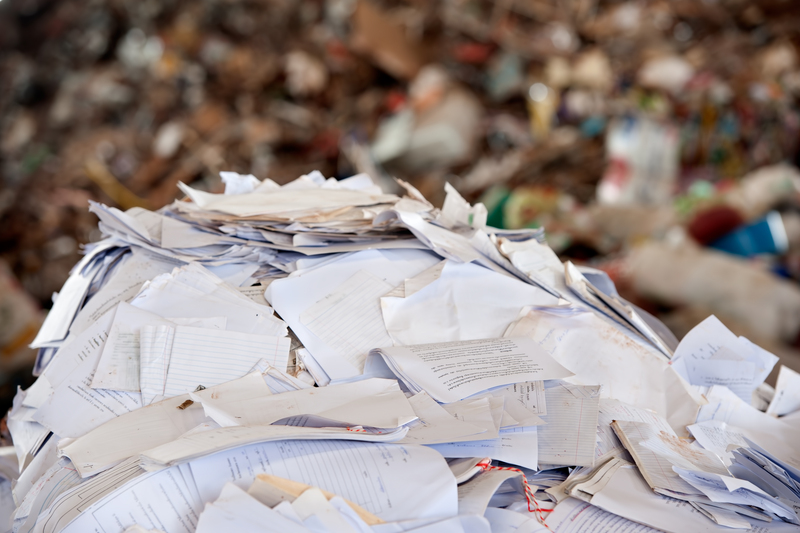Explore the Energy-Saving Potential of Metal Recycling
As the world continues to grapple with climate change and dwindling natural resources, the importance of recycling cannot be overstated. Among the various materials that can be recycled, metal recycling stands out due to its significant energy-saving potential. This article delves into how metal recycling helps reduce energy consumption and why it is vital for a sustainable future.
Understanding Metal Recycling
Metal recycling involves the collection and processing of scrap metal, so it can be reused in manufacturing new products. Commonly recycled metals include aluminum, copper, steel, and iron. These metals are valuable because they retain their natural properties even after multiple recycling processes, making them an excellent choice for recycling.
The Energy-Intensive Nature of Mining and Production
The traditional route of producing metal involves mining, transporting the ore, and then refining it to extract the metal. This process is extremely energy-intensive. For instance, producing primary aluminum requires a significant amount of electricity, with estimates suggesting that recycling aluminum uses only 5% of the energy needed to produce it from raw ore.
Energy Savings in Metal Recycling
Recycling metal significantly contributes to energy conservation. Below are several ways in which metal recycling is energy-efficient:
- Reduction in Mining: Recycling reduces the need for mining activities, which are energy-intensive and environmentally damaging.
- Lower Processing Energy: Melting down scrap metal consumes far less energy than extracting metals from ore.
- Transport Efficiency: The logistics involved in recycling are less energy-consuming compared to the transportation required for mining new metals.
Benefits of Metal Recycling Beyond Energy Savings
While energy conservation is a major benefit, metal recycling also offers various other advantages:
- Reduction in Greenhouse Gas Emissions: Recycling metal results in fewer greenhouse gas emissions compared to producing new metal from ore.
- Conservation of Natural Resources: By recycling, we lessen the demand for raw materials and help preserve our planet's natural resources.
- Economic Benefits: The metal recycling industry creates jobs, supports local economies, and reduces the cost associated with waste management.
The Role of Technology in Metal Recycling
Technological advancements have played a critical role in improving the efficiency and energy-saving potential of metal recycling. Sophisticated sorting technologies and metal detectors help optimize the recycling process by ensuring that scrap metal is correctly sorted and free of contaminants. This efficiency reduces the energy required for processing and improves the quality of the recycled material, making it more marketable.
Global Efforts and Policies Promoting Metal Recycling
Governments worldwide are recognizing the importance of metal recycling in tackling climate change and achieving energy efficiency. Policies aimed at encouraging recycling include incentives for businesses that recycle, stricter regulations on waste management, and public awareness campaigns.
Several countries are leading the charge:
- European Union: The EU has stringent policies that mandate recycling targets, effectively promoting the recycling of metals and other materials.
- United States: Various states have adopted legislation to boost metal recycling and invest in recycling technologies.
- Japan: As a country with limited natural resources, Japan relies heavily on recycling, implementing advanced technologies and policies to maximize metal reclamation.
Industries Leveraging Metal Recycling
A multitude of industries benefit from the use of recycled metals. Here are a few standout sectors:
- Automotive Industry: Automakers increasingly use recycled aluminum and steel to produce fuel-efficient vehicles, contributing to both energy savings and resource conservation.
- Construction Industry: Recycled metals are extensively used in construction for structural frameworks, plumbing, and electrical systems.
- Electronics Industry: With electronics containing precious metals, recycling helps recover valuable materials while reducing electronic waste.
Challenges Facing the Metal Recycling Industry
Despite its advantages, the metal recycling industry faces several challenges. Some metals, like certain types of steel with different alloys, can be difficult to sort and recycle efficiently. Contamination can lower the quality of recycled metals, making them less desirable for high-end applications.
Moreover, fluctuations in the market price for metals can affect the profitability of recycling operations. The industry requires consistent demand and supportive policies to maintain its viability and contribution to energy savings.
How You Can Contribute
Individuals can play a crucial role in promoting metal recycling and its energy-saving benefits. Here are some ways you can get involved:
- Recycle at Home: Ensure that you sort your metal waste for recycling properly. Check with local regulations to understand what metals are recyclable in your area.
- Support Recycled Products: Opt for products made from recycled metals, encouraging companies to continue using and investing in recycled materials.
- Advocate: Raise awareness about the importance of metal recycling by participating in community initiatives and supporting policies that promote sustainable practices.
The Future of Metal Recycling and Energy Conservation
The potential for energy savings through metal recycling is immense. As technology advances and awareness increases, the impact on energy consumption and environmental preservation will only grow. Governments, industries, and individuals alike must work together to harness the benefits of metal recycling and ensure a more sustainable and energy-efficient future for generations to come.
In conclusion, exploring the energy-saving potential of metal recycling reveals significant pathways toward environmental sustainability and reduced energy consumption. By embracing recycling, investing in technology, and promoting sustainable practices, we can make substantial strides in protecting our planet.

